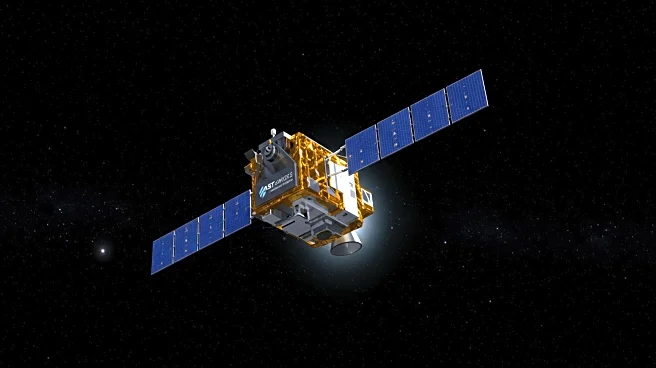What's Happening?
AST SpaceMobile has recently acquired S-Band and L-Band spectrum rights as part of its strategy to deploy a global space-based cellular broadband network. The company announced plans to acquire 60 megahertz of global S-Band spectrum priority rights for $64.5 million from CCUR Holdings, Inc. and EllioSat Ltd. However, industry analysts, including Tim Farrar from TMF Associates, have expressed skepticism about the value of these spectrum rights, suggesting they may be more of a distraction than a beneficial asset. Farrar noted that the filings have lower priority compared to other operators like EchoStar and Omnispace, which diminishes their practical utility.
Why It's Important?
The acquisition of spectrum rights is crucial for AST SpaceMobile's ambition to provide satellite-based broadband services globally. However, the criticism from industry experts highlights potential challenges in realizing these ambitions. The skepticism around the S-Band spectrum's value could impact investor confidence and the company's ability to effectively deploy its planned services. If the spectrum rights are indeed less valuable, AST SpaceMobile may face hurdles in launching satellites and securing compatible devices, which could delay service rollout and affect partnerships with major telecom providers like AT&T and Verizon.
What's Next?
AST SpaceMobile plans to launch a series of satellites to support its broadband services, with a goal to provide nationwide intermittent service in the U.S. by the end of the year. The company aims to expand services to the UK, Japan, and Canada by early 2026. Despite the current skepticism, AST SpaceMobile is moving forward with its satellite launch plans, although it faces delays and logistical challenges. The company will need to address these issues and demonstrate the practical utility of its spectrum acquisitions to maintain investor support and achieve its service goals.
Beyond the Headlines
The broader implications of AST SpaceMobile's spectrum acquisition involve regulatory and operational challenges in the satellite communications industry. The company's reliance on ITU filings underscores the complexity of global spectrum coordination, which requires navigating international regulations and potential interference with existing satellite networks. The skepticism around the spectrum's value also raises questions about the transparency and strategic decision-making within the satellite communications sector.










